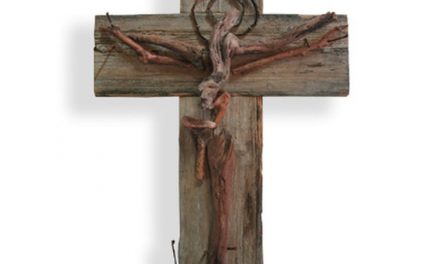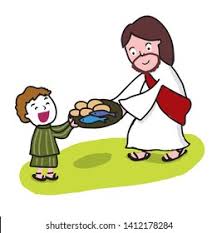Readings for Sunday, August 28, 2011
Twenty-Second Sunday in Ordinary Time: Jer 20:7-9; Ps 63: 2, 3-4, 5-6, 8-9; Rom 12:1-2; Mt 16:21-27
The challenges posed by suffering can be addressed pastorally or they might be treated in a purely philosophical vein. Yet, the readings for this coming Sunday show that the question of suffering is always a moral challenge as well. In particular, suffering calls us to a complex moral discernment about our response to the reign of God.
In Paul’s letter to the Romans, moral discernment appears as a way in which we worship God:
. . . offer your bodies as a living sacrifice, holy and pleasing to God, your spiritual worship. Do not conform yourselves to this age but be transformed by the renewal of your mind, that you may discern what is the will of God, what is good and pleasing and perfect. (Rom 12:1-2)
To be a “living sacrifice” means to seek ways to constantly refer our lives to God. In the verses of Romans immediately following those of the Second Reading, we find the varied gifts given to the community (united as many parts of the Body of Christ) that enable our seeing, judging, and acting in the pursuit of truth and goodness. Whether prophecy, teaching, acts of mercy, or exhortation, the gifts within our community make it possible to engage in moral discernment as a service and offering to God.
That all sounds nice and tidy, but the Gospel provides a stark reminder of how very difficult it is to discern the path of our moral lives. After a self-esteem-building moment for Peter last Sunday (“you are Peter, and upon this rock I will build my church….I will give you the keys to the kingdom of heaven,” Mt 16:18-19a), this Sunday Peter is reminded of his weakness and limited moral perception. After Jesus explains that he will suffer and be killed, Peter exclaims: “God forbid, Lord! No such thing shall ever happen to you,” (Mt 16:22). While wanting to avoid another’s suffering seems altogether reasonable, Peter is “thinking not as God does, but as human beings do” (16:23).
Peter is not alone on this one. Suffering presents a distinctive obstacle for human moral discernment. Indeed, in the First Reading, we encounter the prophet Jeremiah whose raw, impassioned complaint demonstrates how affliction can seem to put us and God at odds with one another: “You duped me, O LORD, and I let myself be duped; you were too strong for me, and you triumphed” (Jer 20:7).
How ought we to approach suffering, specifically as a moral response to our relations with one another and ultimately God? When does suffering bring us closer to the good of God’s kingdom and when is it an outrage to the goodness of creation? How can we reconcile the self-emptying of the cross with prophetic words and deeds that rail against poverty and oppression?
These are familiar questions. Sometimes we end up feeling like Jeremiah, being played and even preyed upon by God. Yet, it is important to remember that as we discern a moral response to suffering, the rightly-ordered impulses to acceptance as well as rejection have in common a desire for the fulfillment of the reign of God. There are real dangers in adopting an exclusive position for either a complete surrender to suffering or complete elimination of it. In a recent post by Charlie Camosy, we can see how an overeager rejection of suffering can lead to the destruction of physically and mentally-challenged members of our community. Such attempts to improve the lives of families have become unhinged from the reign of God, in which dignity and solidarity are non-negotiables.
Still, even when we avoid the trap of one of the two extremes, discernment amidst the tension between loving acceptance and prophetic rejection seems ripe for error, if not abuse. There is no easy place to stand here. We will continue to be faced with these thorny questions of suffering. Suffering may be an expression of love as we accept new responsibilities for an infirm parent in need of daily care. Suffering may be a result of injustice when exploited workers are crushed by sinful economic arrangements. How much of our own suffering is appropriate in response to a world with seemingly endless needs? The answers must come from a moral discernment within our multi-gifted community that is rooted in a vision of the reign of God. Day after day we must be disciplined, like Peter, to see the world not as human beings do, but as God does.



